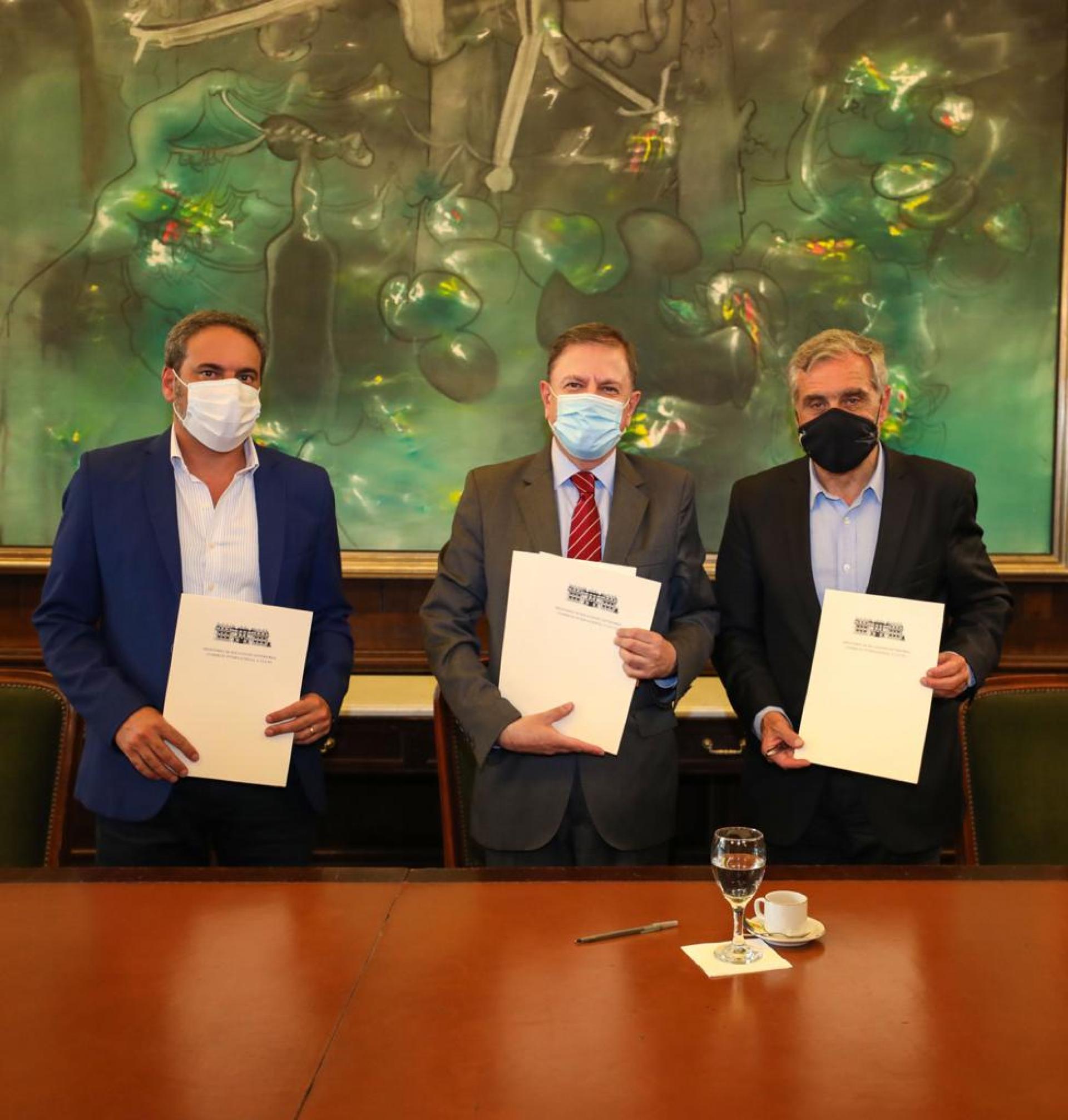At the Palacio San Martín, the director of the Argentine National Foreign Service Institute (ISEN), Eduardo Zuaín, signed two agreements with the heads of the National Viticulture Institute (INV), Martín Silvestre Hinojosa, and of the Argentine Wine Organization (COVIAR), José Alberto Zuccardi, to promote cooperation between the Argentine Foreign Ministry and the national viticulture sector.
“The agreements we have signed with wine sector representatives are the result of the instructions given by Foreign Minister Felipe Solá to the different offices of the Foreign Ministry to strengthen cooperation with the Argentine business sector, as part of the strategy to favour our country’s trade integration with the world,” stated Ambassador Zuaín after executing the agreement.
Ambassador Zuain highlighted the need to train consular officials and future diplomats with regard to Argentina’s productive structure and exportable offer: “In order to promote and defend something, you must know what it is about. So it is important to be familiar with our country’s wine production, its types of wine and variety of products and regions, as well as the characteristics of the foreign market, who our competitors are and the possibilities we have as a country,” he explained.
In addition, Martín Hinojosa stated that “the INV, as representative of the International Organization of Vine and Wine (OIV) and of the World Wine Trade Group, must support the Foreign Ministry through technical training and international commercial agreements” and highlighted that these agreements will help “achieve one of the objectives: to improve the competitiveness of Argentine wine in the foreign market so as to increase wine exports.”
He also noted that “consular officials represent Argentine around the world, they are our ambassadors and therefore, they must receive training and be familiar with the characteristics of our wine, the regions, the soil, the weather, the wineries, etc. in order to improve communication and familiarity with the brand in the foreign market.”
Zuccardi stated that “embassies today are true commercial offices of Argentina in the world” and explained that “we must communicate what we do as an industry and offer training and this opportunity to do it through ISEN and INV is very good. Viticulture and its exportable offer contribute to the country’s income, generate foreign currency inflows and more importantly, they help to build a national brand.”
Training on the cultural, historic, geographic and production structure characteristics of the vine in Argentina will enhance all the exportable by-products offered by Argentine viticulture, such as fractionated and bulk wine, grape must, raisins and grapes for direct consumption, among others.
The agreements signed in the Cedros Room of the Palacio San Martín provide for virtual training –for as long as the health conditions related to the Coronavirus pandemic persist- for at least 50 Argentine embassies around the world. These agreements are consistent with the Goals and Priorities of the Viticulture Strategic Plan for 2030.
The INV is a government agency that controls, promotes, and does research on the vine and wine industry in Argentina. It also controls production and sale of alcohol and is the application authority of the law establishing the General Rules to Designate and Present Wines and Wine-derived Spirits.
COVIAR is a public-private entity created by Law No. 25,849 to transform the wine sector and to strategically boost its strengths and opportunities in the global market of wine, grape must, raisins, and grapes. It promotes the organization of the production chain and aims to increase the sector’s added value to win, maintain and strengthen domestic and foreign markets.
Law No. 26,870 gives Argentine Wine “National Drink” status. This showcases the cultural value of our wine and its important place in national identity, as well as the human resources linked to production, from vineyard to sale, and promoting the presence of Argentine wines in Argentine embassies around the world.



